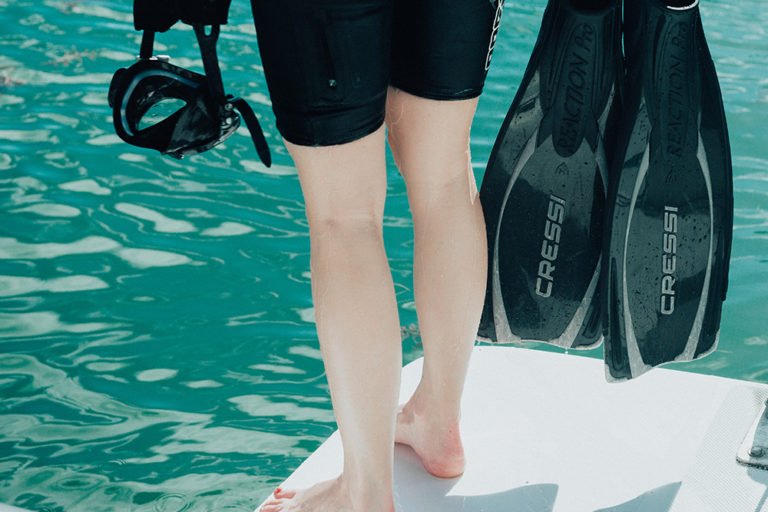Scuba Diving: It’s Not As Scary As It Seems

From the Jaws to The Shallows, the open ocean tends to get a rap. So when it comes to strapping on a tank and diving into the deep blue, it’s only natural to feel a little uneasy. Like any adventure sport, scuba comes with some risks and dangers. But with proper protocol and basic training, you can ensure safety with each and every expedition.
IS DIVING DANGEROUS?
According to the “Divers Alert Network (DAN)” a diving-related death occurs in 1 out of every 211,864 dives. Without getting too morbid on you, let’s compare it to some other activities.
- 1 out of every 5,555 of registered drivers in the US died in car accidents in 2008 (www.census.gov)
- 1 out of every 116,666 skydives ended fatally in the US in 2000 (United States Parachuting Association)
See? Not so bad. And the most common diving dangers end in sickness (not death). The most common scuba-related sickness is Decompression Sickness (or “the bends”).
HOW DO YOU AVOID DANGER?
According to the DAN, the top three causes of diving deaths are avoidable:
- Pre-existing disease in the diver
- Poor buoyancy control
- Rapid ascent or violent water movement
Note: Shark attacks did not make the list. You can ensure your own safety by following the practices taught before and during scuba diving training.
Prior to training, you will receive a scuba diving medical questionnaire that, when answered honestly, will alert you of any medical problems that could predispose you to danger during diving. And, you will be advised to periodically retake the questionnaire.
Your diving instructors will teach you all about buoyancy control before you get your certification. If you still feel a little unclear, consider taking a refresher course.
And lastly, rapid ascents are often caused by poor buoyancy control and panic. We recommend diving with a buddy for added safety (and well, fun).
HOW DO YOU STAY SAFE WHEN SCUBA DIVING?
In addition to diving with a buddy, we recommend:
- Planning your dive and establishing your maximum depth and bottom time.
- Always performing the Pre-Dive Safety Check before diving.
- Monitoring your depth and pressure gauge throughout your dive.
- And have fun!
IS IT WORTH THE RISK?
While we may be a little biased, we think scuba diving is definitely worth it. You can minimize any risks of diving by getting your certification and following basic protocol. And in our opinion, the pros far outweigh the cons. Still not convinced? Check out the 7 Reasons Why You Need to Try Diving Now.
